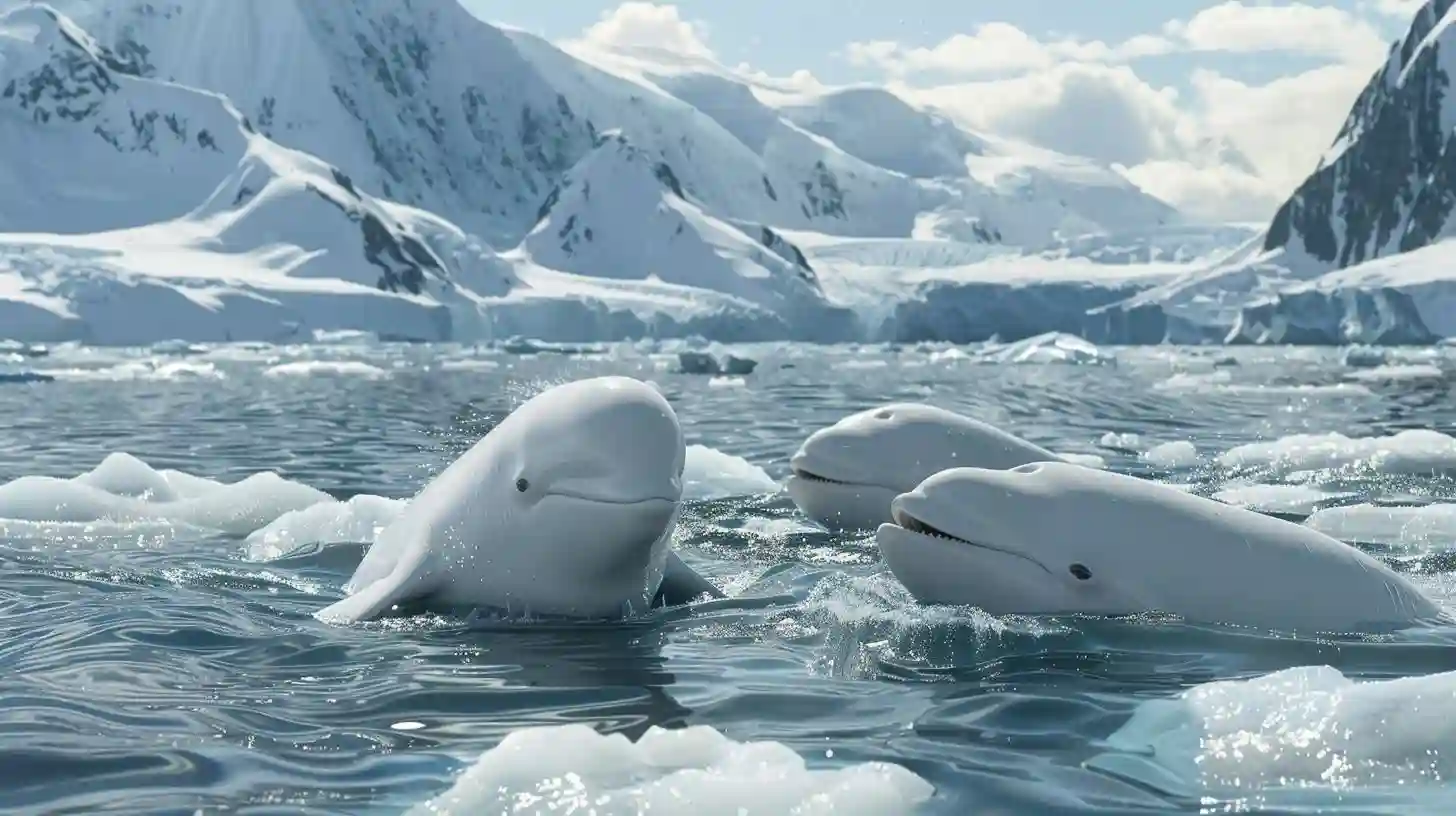
Beluga whales, also known as the "canaries of the sea" because of their high-pitched vocals, are one of the most amazing creatures in the ocean. These beautiful beluga whales are easily recognized by their characteristic bulbous heads and rounded foreheads. They are highly social animals, often found in groups known as packs, which can consist of up to 25 individuals. Beluga whales are known for their playful behavior and can often be seen swimming upside down, blowing bubbles and even imitating human sounds.
Beluga whales live in arctic and sub-arctic waters, where they move easily through icy seas thanks to a thick layer of blubber and the ability to regulate their body temperature. They are known for their incredible diving abilities, reaching depths of up to 2,000 feet in search of food. Beluga whales primarily feed on fish, squid and crustaceans, using their sharp teeth to catch prey. They are also known to use echolocation to navigate and hunt in dark waters.
One of the most unique features of belugas is their melon, a fatty bump on their heads that helps them produce high-frequency sounds that they use to communicate and navigate underwater. Beluga whales have a varied range of vocalizations, from whistles and clicks to chirps and trills. These sounds can travel for miles underwater, allowing beluga whales to communicate with each other over long distances.
Beluga whales are known for their strong mother-calf bonds, with mothers caring for their young for up to two years. Calves are born dark gray or brown and gradually turn white as they mature, reaching maturity at about seven years of age. The lifespan of beluga whales in the wild is up to 50 years, with females usually outliving males.
Unfortunately, beluga whales face a number of threats in the wild, including habitat loss, pollution, climate change and hunting. Beluga whales are especially vulnerable to noise pollution, which can interfere with their ability to communicate and navigate underwater. They are also at risk from oil spills, which could contaminate their food sources and disrupt their fragile ecosystem.
Efforts are currently underway to protect beluga whales and their habitat. Marine sanctuaries were created to provide beluga whales with safe places to feed, breed and raise their young. Research is also being conducted to better understand the behavior and ecology of beluga whales, which will help develop conservation strategies and protect these magnificent creatures for future generations.
Beluga whales are truly remarkable animals, their majestic white bodies and playful nature capture the hearts of all who encounter them. As we work to protect and conserve these amazing creatures, we must remember the importance of preserving our oceans and the delicate balance of life within them. Beluga whales serve as a symbol of the beauty and wonder of our natural world, reminding us to protect and conserve the incredible diversity of marine life that inhabits our planet.